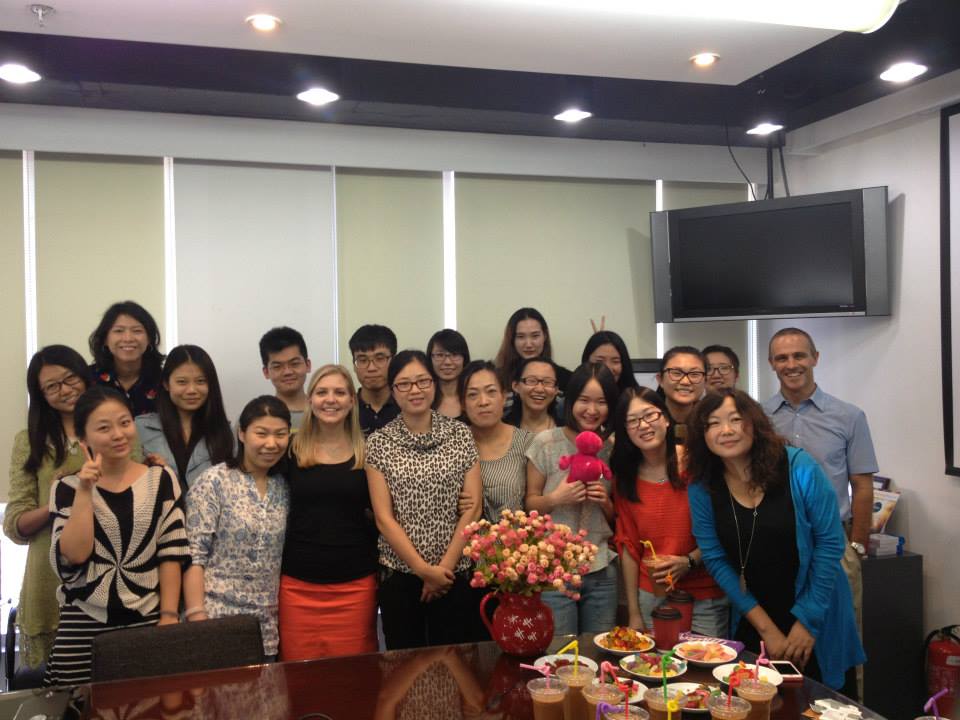“It feels like Alex is already part of the family,” said Nick Wheeler, General Manager of the Ketchum Beijing office, only a few days after I arrived there in August 2013. And this pretty much summarizes how it felt to me spending my two weeks scholarship with Ketchum in China. Nick and all my amazing co-workers made it so easy for me to feel at home in a country that couldn’t be more different from my home country. And it amazed me how much the Ketchum spirit was the same as that which I know from Germany.
When the year 2013 started I had no idea what a great adventure was waiting just around the corner. So when I was told that I got the scholarship for Beijing, China, it took me a while to realize what an amazing opportunity this was! I started my trip on August 22nd with mixed feelings. Of course, on the one hand, I was extremely excited, but on the other hand, I knew that some culture shock might lie ahead of me. Thanks to the great support and a comprehensive information kit from the Global Scholarship Team, I was well prepared.
As my time went on at the Beijing office, I gained a better understanding of what Chinese people are driven by, which challenges China is facing and how the media and social media landscape differs from ours. This made it a lot easier for me to get involved into the client projects at the Beijing office. Doing PR in China is quite different from what I knew. For a start, PR professionals and the journalists that they deal with have to be very aware of the current political atmosphere and understand where the “no-go” areas are in terms of messaging. The media in China are monitored and censored in order to ensure conformity with the Communist Party’s point of view of major issues of geopolitical or economic significance. However, this is generally not much of an issue for corporate clients who try to avoid politically sensitive topics as far as possible.
Also, the social media landscape is completely different from what we know in Europe or the U.S. There’s no Twitter or Facebook, but instead many counterparts like WeChat, Sina Weibo, RenRen and Yuku. There are almost 600 million Chinese people registered in the social net and the potential is huge, which is why companies in China more and more start to integrate those networks into their PR strategies. China’s economy is growing rapidly and it represents one of the most important markets in the world. Hence, professional PR/social media strategies that are tailored for the specific needs of the Chinese consumers become increasingly important to international companies.
During my scholarship I also realized that building relationships and strengthening the group spirit have a very high significance in Chinese working culture. Tea breaks, long lunch hours and group sessions are part of a Chinese working day and made it very easy for me to get to know my co-workers better.
To also share some German culture and our way of working I held a session about the Ketchum and Brandzeichen offices and our clients in Germany. My most important takeaway (besides many, great new friends and insights in the Chinese culture) is that if you have an open, curious and respectful attitude, it can be the most inspiring and enriching experience to work in another country. And even though Germany and China may seem completely different from each other, I’ve come to the conclusion that they make a perfect match when it comes to working together and learning from each other!




